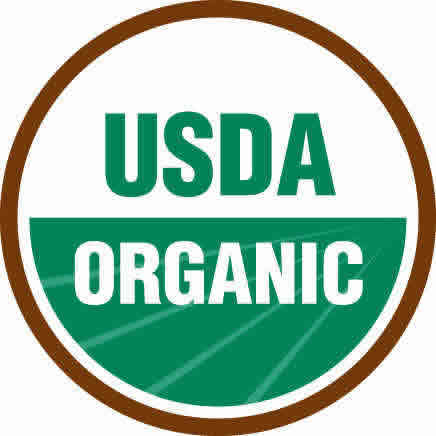 Organic Food Trends - January 17, 2006 Jeff Schalau, County Director, Associate Agent, Agriculture & Natural Resources Arizona Cooperative Extension, Yavapai County Many home gardeners consider themselves to produce “organic” vegetables and fruits. This may or may not be true. Foods labeled and sold as organic must be certified as such. This includes certification of the grower(s), handler(s), and processor(s) by USDA-accredited certifying agents. Most backyard producers that feel their produce is organic would not satisfy these rigorous standards, let alone justify the expense associated with organic certification. For more information on the organic certification process, consult the March 24, 2004 Backyard Gardener on the web site. This column examines organic food production and the impact it’s having on agricultural and marketing systems. The two primary markets for organic foods are the European Union (EU) and the United States. Many EU countries have "green payments" available for transitioning and continuing organic farmers, as well as a variety of other supply and demand policies aimed at promoting growth of the organic sector. In contract, the U.S. Government has largely taken a free-market approach to the organic sector, and policy is aimed at developing new markets. These divergent strategies are what I would expect considering the EU often trends toward socialism while the US trends toward capitalism. US organic food production is no longer reliant on small farms run by “progressives” fleeing modern society. US organic food production has become “big business”. General Mills, Kellogg, Kraft, and others are ramping up their organic product lines. Many food companies are scrambling to find the organic ingredients to satisfy the demand for their products. With this rapid increase demand, there is no way that small farms can produce the amounts needed to satisfy needs. Wal-Mart announced recently that it plans to double its offerings of organic products including produce, dairy, and dry goods. Some small growers fear that large companies with superior buying power could use their market strength to drive down prices and hurt US farmers. In addition, many of the large organic food companies must buy their ingredients from foreign producers to satisfy production demand. It is ironic, but I don’t think the original vision of the “organic movement” was to create new multinational corporate machines – yet that appears to be the trend in the US. Maybe the EU’s socialized approach to organic agriculture has a greater potential to sustain small farms and local agriculture, but it has a definite societal cost. In all, I think that both the US and EU systems are working in the ways that support the divergent political ideals of each society as a whole. Over time, more US producers will shift to organic production. As this occurs, then it should have the positive environmental benefits of reduced pesticide use and sustainable fertilization practices. Conversely, we have also seen increased food borne illness outbreaks that are associated with organic agricultural practices. This threat will certainly require closer attention to organic food production systems. Presumably, many readers of this column also grow their own food in backyard gardens. These folks also know the challenges growers are faced with as wells as the labor and resources required to grow food. It’s not easy. I think our next great agricultural challenge in the US will be producing enough affordable food locally and regionally to satisfy the requirements of our growing population. As transportation costs continue to drive food costs upward, we might want to consider the value of small, local agriculture in our rural western communities. In closing, I hope this philosophical topic was not too tedious for steadfast gardeners. In closing, I hope this philosophical topic was not too tedious for steadfast gardeners. Bill McDorman, local seedsman and educator (www.seedstrust.com), spoke on this topic last fall and I wanted to share it. The University of Arizona Cooperative Extension has publications and information on gardening and pest control. If you have other gardening questions, call the Master Gardener line in the Cottonwood office at 646-9113 ext. 14 or E-mail us at cottonwoodmg@yahoo.com and be sure to include your address and phone number. Find past Backyard Gardener columns or submit column ideas at the Backyard Gardener web site: http://cals.arizona.edu/yavapai/anr/hort/byg/. |